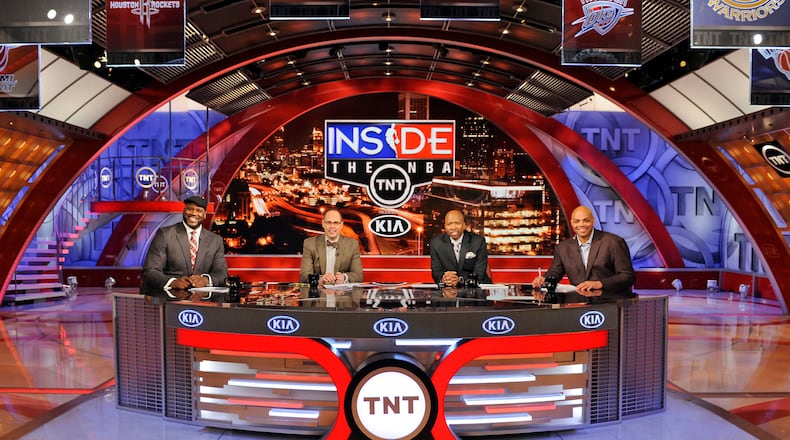SPORTS MEDIA
TNT Sports’ parent company Warner Bros. Discovery on Friday sued the NBA after the basketball league rejected its efforts to keep airing games.
“Given the NBA’s unjustified rejection of our matching of a third-party offer, we have taken legal action to enforce our rights,” TNT Sports said in a statement released to the media. “We strongly believe this is not just our contractual right, but also in the best interest of fans who want to keep watching our industry-leading NBA content with the choice and flexibility we offer them through our widely distributed WBD video-first distribution platforms ― including TNT and Max.”
The NBA has accepted three media partners to air its games from 2026 to 2036, deals with a combined total value of $77 billion from Disney (ABC/ESPN), NBCUniversal and Amazon.
NBA’s current media partners are Disney and WBD, which has aired NBA games going back the 1980s under a predecessor company it now owns, Atlanta-based Turner Broadcasting System (TBS). WBD’s current contract, in which it pays about $1.2 billion a year, ends after the 2024-2025 season, but WBD was unable to come up with a deal during its exclusive renegotiating period earlier this year.
This enabled two new partners to enter the picture: NBCUniversal and Amazon. TNT Sports offered what it deemed a matching off for the Amazon package of games, a right it had under its contract.
The NBA didn’t consider TNT Sports’ offer as a true match and told WBD on Wednesday it was sticking with Amazon, which is reportedly paying $1.8 billion a year for its deal.
The lawsuit said the NBA “has breached the agreement and deliberately refused to honor TBS’s rights, forcing TBS and WBD to seek judicial intervention.”
The loss of the NBA is a big blow to the value of TNT since live sports have been among the final bulwarks keeping many viewers paying for basic cable.
“The ability to telecast NBA games not only drives significant viewership and ratings on TNT (which affects the price TBS and WBD can charge to their advertisers and downstream distributors that license TNT),” the lawsuit said, “it also provides a halo effect that is used to promote other content and drive attention and viewership to other TBS and WBD channels, networks, and properties.”
About the Author
Keep Reading
The Latest
Featured




